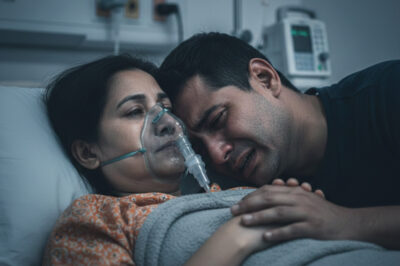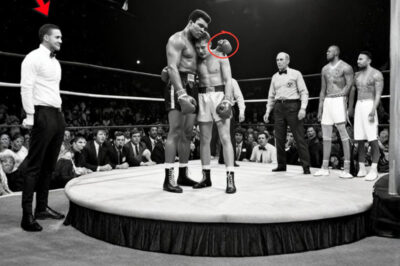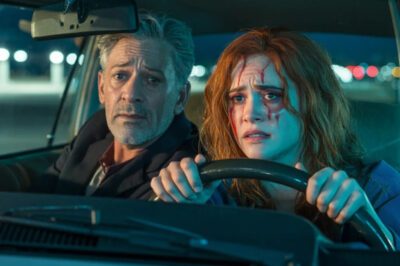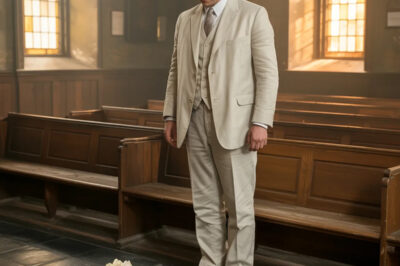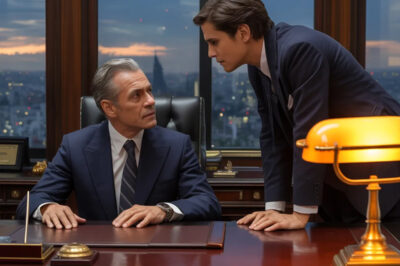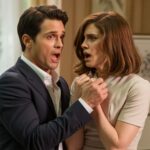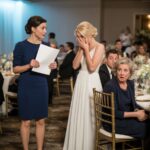Thieves Stole Every Motorcycle From Our Children’s Cancer Charity Show Worth Half A Million
Someone stole every single motorcycle from the children’s cancer ward benefit show for raising funds for cancer patients, twenty-three bikes worth over half a million dollars, gone in the night.
The news ran the story as another example of “biker gang violence,” assuming rival clubs had robbed each other while sick kids waited for their charity money.
I stood in that empty lot, looking at oil stains where custom Harleys had gleamed just hours before, listening to reporters talk about “criminal elements” and “what do you expect from bikers.”
The show’s organizer, a tough-looking man called Priest, just stood there silent while parents cried about their children’s lost treatment funds. Even other bikers shook their heads, talking about finding whoever did this, about street justice and payback.
Then I noticed Priest smiling as he looked at his phone, and he whispered to me: “Check the pediatric ward parking lot.”
Every single “stolen” bike was there, keys in ignitions, with a note on each windshield that made me understand why twenty-three bikers had just committed insurance fraud.
The note was simple, written in block letters: “FOR LILY MORRISON – STAGE 4. INSURANCE CLAIM #MC23-7894. ESTIMATED PAYOUT: $500,000. BILL ST. JUDE’S DIRECTLY.”
I stood there in the hospital parking lot at 6 AM, watching the sunrise reflect off twenty-three motorcycles that were supposed to be stolen. My hands shook as I read the note again. These bikers hadn’t stolen from each other. They’d stolen from themselves.
“You a reporter?” A voice behind me made me jump.
I turned to find a man in his sixties, wearing a Road Kings vest, gray beard braided neatly. He was holding a cup of coffee and looking at me with tired eyes.
“I’m… I was at the show last night,” I said. “I’m Sarah Chen. I write for the Tribune.”
He nodded slowly. “Figured someone would find them eventually. Though we hoped it’d be after the insurance companies processed the claims.”
“You’re admitting to insurance fraud?”
He shrugged. “I’m admitting to twenty-three men loving their bikes less than they love kids dying of cancer. You can write whatever story you want from that.”
He introduced himself as Memphis, vice president of the Road Kings. As we talked, more bikers appeared in the parking lot, each checking on their “stolen” motorcycle before heading into the hospital.
“Lily Morrison,” Memphis said, looking up at the pediatric ward windows. “Seven years old. Been here for eight months. Insurance won’t cover the experimental treatment that might save her life. Her dad worked two jobs until he dropped dead from a heart attack three months ago. Mom’s sleeping in hospital chairs, selling everything they own.”
“So you all just decided to commit fraud?”
“We decided to file legitimate theft reports,” Memphis corrected. “Our bikes were stolen. We’ll get insurance payouts. What we do with that money is our business.”
By 7 AM, the parking lot was filling with bikers. Not the twenty-three who’d “lost” their motorcycles, but dozens more. They moved quietly through the morning mist, leather vests identifying different clubs that usually kept their distance from each other. Iron Horsemen. Devil’s Disciples. Christian Riders. Veterans Brotherhood. All here for the same reason.
“The show raised thirty thousand,” a woman in a Valkyries vest told me. “Good money, but not enough. Not for what these kids need. So Priest had an idea.”
Priest. The show organizer who’d stood silent while reporters painted bikers as criminals. I found him on the third floor, sitting beside a bed where a tiny girl slept surrounded by machines. Lily Morrison, according to the chart.
“Insurance companies won’t pay for experimental treatments,” he said without looking at me. “But they’ll pay for stolen motorcycles. Every man who parked in that lot last night knew what they were signing up for.”
“What about the police? The investigation?”
“What investigation?” Priest smiled grimly. “Twenty-three bikes vanish from a biker event. Cops’ll write it off as club business, warn us not to start a war. Insurance companies will pay out quick to avoid dealing with ‘dangerous bikers’ causing trouble.”
“And the bikes?”
“Will stay right here until the checks clear. Then they’ll mysteriously reappear. Found abandoned somewhere. Returned to their grateful owners.” He finally looked at me. “You going to write about this?”
Before I could answer, Lily stirred in her bed. Her eyes, too big in her pale face, focused on Priest.
“Uncle Priest?” Her voice was barely a whisper. “Did the motorcycle show help?”
“Yeah, baby,” he said, taking her small hand in his massive, tattooed one. “The show helped a lot.”
She smiled and drifted back to sleep. Priest’s eyes were wet.
“Her dad wasn’t a biker,” he said quietly. “But he fixed our bikes at his shop. Never charged full price, sometimes didn’t charge at all if he knew someone was struggling. When he died, we promised to look after his girls.”
Over the next three hours, I watched these “criminal bikers” move through the pediatric ward like leather-clad angels. They read stories, played games, held babies whose parents needed breaks. The staff clearly knew them well, greeting them by name, trusting them with the most vulnerable patients.
“Media paints us as thugs,” Memphis said, watching a heavily tattooed biker make balloon animals for a boy in a wheelchair. “Sometimes that reputation is useful.”
By noon, I’d learned the full scope of their plan. Twenty-three bikes reported stolen, average insurance payout of twenty thousand each. Every penny would go directly to families whose insurance had denied critical treatments. They’d done this before, just never on this scale.
“Tommy Briggs,” a biker named Scratch told me, pointing to a photo on the ward’s “Success Stories” wall. “Four years ago, needed a bone marrow transplant. Insurance called it ‘experimental.’ My Softail became his new immune system.”
“Maria Gonzalez.” Another biker pointed to a different photo. “Brain tumor. Treatment only available in Germany. Three of us lost our bikes that year. She starts high school next month.”
The wall was full of photos. Smiling children who were alive because bikers had chosen their lives over their rides.
“But what you’re doing is illegal,” I said, journalist instincts warring with human emotion.
“So is letting kids die because their parents can’t afford treatment,” Memphis replied. “You pick your crimes in this life. We’ve picked ours.”
Dr. Patricia Hollamd, the head of pediatric oncology, found me in the hallway. I expected her to deny knowledge, to distance the hospital from any illegal activity. Instead, she pulled me into her office.
“I’ve been here fifteen years,” she said. “I’ve watched children die not from cancer, but from insurance denials. I’ve seen parents bankrupt themselves, lose homes, destroy marriages trying to save their kids. And I’ve watched those bikers out there find ways to help when the system fails.”
“You know what they’re doing?”
“I know that anonymous donations show up whenever one of my kids needs something insurance won’t cover. I know that those ‘thugs’ have saved more lives than most philanthropists. I know that Lily Morrison will get her treatment now, and I don’t much care how.”
She showed me a folder. Anonymous donations over the past five years totaling over two million dollars. All cash. All precisely matching the amounts needed for denied treatments.
“Twenty-three stolen motorcycles,” Dr. Holland said. “Do you know how many children that could save? Because I do. I have their files right here. Kids who will die without treatments their insurance companies have deemed ‘unnecessary’ or ‘experimental.’”
The pile was heartbreakingly thick.
That afternoon, the police arrived as expected. Two detectives who looked like they’d rather be anywhere else, going through the motions of investigating a theft everyone assumed was biker-on-biker crime.
“Any security footage?” Detective Murray asked Priest.
“Cameras went down around midnight,” Priest replied with a straight face. “Weird coincidence.”
“Any suspects? Rival clubs with grudges?”
“Can’t think of any.”
The detective sighed. “Look, we’ll file the report. But you know how these things go. Bikes stolen from a biker event… usually internal business. You guys handle your own justice.”
“Appreciate your help, officers,” Priest said solemnly.
After they left, I confronted Priest. “You had this all planned. The security cameras, the investigation, everything.”
“Sarah,” he said, “I need you to understand something. Every man who gave up his bike last night has payments, mortgages, families. Those motorcycles aren’t just vehicles to us. They’re freedom, identity, sometimes the only thing we really own. But every single one of them handed over their keys without hesitation.”
“Why?”
He gestured to the hospital around us. “Because we’ve all lost people. Brothers to war. Friends to cancer. Parents to time. We couldn’t save them. But maybe we can save these kids.”
That evening, I sat in Lily Morrison’s room with her mother, Angela. She didn’t know about the motorcycles, only that Priest had told her not to worry about money anymore.
“My husband loved these bikers,” she said, exhausted beyond measure. “I never understood it. Thought they were a bad influence, waste of time. But when Mike died…” She trailed off, then continued. “They paid for his funeral. Been bringing groceries. Sitting with Lily so I can shower. And now this miracle donation…”
“Miracle,” I repeated, thinking of twenty-three empty parking spots.
At 8 PM, my editor called. “Where’s the story on the motorcycle theft? It’s trending on social media. Everyone’s talking about biker wars, violence at charity events.”
I looked at my laptop screen where I’d written two different articles. One exposed the insurance fraud, the carefully orchestrated theft, the criminal conspiracy to fund medical treatments. It would win awards, make my career, destroy lives.
The other simply reported twenty-three motorcycles stolen from a charity event, no suspects, investigation ongoing.
“Sarah? The story?”
“Twenty-three bikes stolen,” I said. “Cops have no leads. Probably internal biker conflict.”
“That’s it? No angle?”
I watched Priest walk past Lily’s room, pausing to wave at her through the window. This man had given up a motorcycle worth more than most people’s cars to save a child he wasn’t related to.
“No angle,” I said. “Just another biker crime story.”
I filed the brief, facts-only report and closed my laptop. Sometimes the best stories are the ones you don’t tell.
Three weeks later, I got a text from Memphis: “Insurance claims processed. Treatment starts tomorrow.”
I drove to the hospital and found the pediatric ward parking lot full of motorcycles. Not twenty-three, but over a hundred. Bikers from every club in the state, coming to support Lily on her first day of treatment.
But the real surprise was in the main lot. Twenty-three motorcycles, freshly cleaned and gleaming, with new license plates and registration stickers.
“Anonymous donation to the club,” Priest told me with a wink. “Can you believe someone just gave us twenty-three bikes? Same makes and models as the ones that were stolen. What are the odds?”
Lily Morrison started her experimental treatment that day. Six months later, I attended her eighth birthday party in the hospital playroom. She was still bald, still thin, but the latest scans showed the tumor shrinking.
“My dad’s friends saved me,” she told anyone who would listen, pointing to the bikers who filled the room. “They’re superheroes with motorcycles.”
One year later, I stood in that same parking lot where twenty-three bikes had vanished. The benefit show was happening again, bigger than before. This time, news crews were present for the right reasons – to cover the massive fundraising effort, the success stories, the community coming together.
But I noticed something else. Quietly, without fanfare, certain bikes were being moved to a separate section. Their owners dropping keys into a locked box. A new list of children pinned to Priest’s clipboard.
“How many this year?” I asked him quietly.
“Thirty-seven,” he said. “Thirty-seven bikes. Fifty-three kids on the treatment list.”
“That’s not enough bikes for all those kids.”
Priest smiled. “Multi-bike families are donating extras. Some guys are putting up their cars too. We adapt.”
Detective Murray walked past, now retired and wearing a Road Kings support vest. He nodded to me, said nothing about the bikes being organized in the corner. Some crimes, I’d learned, weren’t worth solving.
As the sun set over the benefit show, I thought about the story I’d never fully told. About twenty-three men who’d chosen to become criminals to save children’s lives. About a system so broken that insurance fraud had become a form of charity. About bikers who loved their motorcycles but loved kids more.
“You ever regret not writing the real story?” Priest asked, standing beside me.
“Every day,” I admitted. “It would have been the story of my career.”
“But?”
I looked at Lily Morrison, now healthy enough to sit on a stationary display bike, grinning ear to ear as bikers took photos with her.
“But some stories are worth more untold,” I said.
Priest nodded. “Twenty-three bikes stolen. No suspects. Case closed.”
“Case closed,” I agreed.
That night, twenty-three more motorcycles would disappear. Twenty-three more police reports would be filed. Twenty-three more insurance claims would process. And somewhere in a pediatric cancer ward, children who should have died would live.
All because of the night twenty-three bikers decided that motorcycles were just metal and chrome, but kids were everything.
The news would report it as another theft, another example of biker criminality. Let them. The truth was both more criminal and more beautiful than anything they could imagine.
Some angels wear leather instead of wings. Some miracles come with felony charges. And sometimes, the best kind of love is the kind that’s willing to sacrifice everything – even freedom – to save a life.
Twenty-three motorcycles. Fifty-three children. One night that changed everything.
That’s the story I’ll never tell. And it’s the one I’m most proud of keeping secret.
News
Aun así, Aarón guardó silencio. Miró a su hija de cuatro años—acurrucada bajo la cobija, aferrada a su osito de peluche mientras dormía profundamente—y entendió que él no tenía derecho a romper aquel hogar…
Aun así, Aarón guardó silencio. Miró a su hija de cuatro años—acurrucada bajo la cobija, aferrada a su osito de…
Ella dejó a un hombre sin hogar negro ducharse en su casa. Cuando terminó, se desmayó al verlo…
Ella dejó a un hombre sin hogar negro ducharse en su casa. Cuando terminó, se desmayó al verlo… Una joven…
El peso de los puños rotos
El peso de los puños rotos El aire dentro del Olympic Auditorium de Los Ángeles, aquel 15 de marzo de…
En el estacionamiento del aeropuerto de la Ciudad de México, encontré a mi hija dormida dentro de su coche junto a sus gemelos. Le pregunté: —¿Dónde están los ocho millones de pesos (150 mil dólares) que invertí en tu startup? Rompió en llanto. —Mi esposo y su familia se llevaron todo… me hicieron pasar por loca. Sentí que se me nublaba la vista. —Recoge tus cosas —le dije—. Vamos a arreglar esto ahora mismo.
En el estacionamiento del aeropuerto de la Ciudad de México, encontré a mi hija dormida dentro de su coche junto…
Lo dejaron plantado en el altar, y él se casó con su esclava que tanto lo amaba…
Lo dejaron plantado en el altar, y él se casó con su esclava que tanto lo amaba… Ella lloraba escondida….
El peso de lo invisible
El peso de lo invisible Don Esteban Montoya entendía el silencio mejor que nadie. En su mundo, el ruido solía…
End of content
No more pages to load

